Microbiome & microbiota
The microbiome
Whether on the skin or in the body, every person has a large number of bacteria.
Although some bacteria can cause disease, many of them play an important role in keeping us healthy. The collection of these good bacteria is called the "human microbiome". It is as unique as a fingerprint. It is unique to each person. It begins to develop at birth and evolves throughout our lives.
Did you know that 10% of a person's body weight is composed of bacteria?
The term "microbiome" is used to designate the microbial population referring to the genes or genetic makeup of the "microbiota".
The microbiota
Did you know that the microbiota is the set of microorganisms that inhabit the microbiome?
The human microbiota includes bacteria, yeast, fungi, viruses and other microorganisms living in human organisms in contact with the outside world:
- On the skin: skin microbiota
- In the mouth: oral microbiota
- In the respiratory tract: pulmonary microbiota
- At the level of the genitals: vaginal microbiota
- In the digestive tract: intestinal microbiota, the most important.
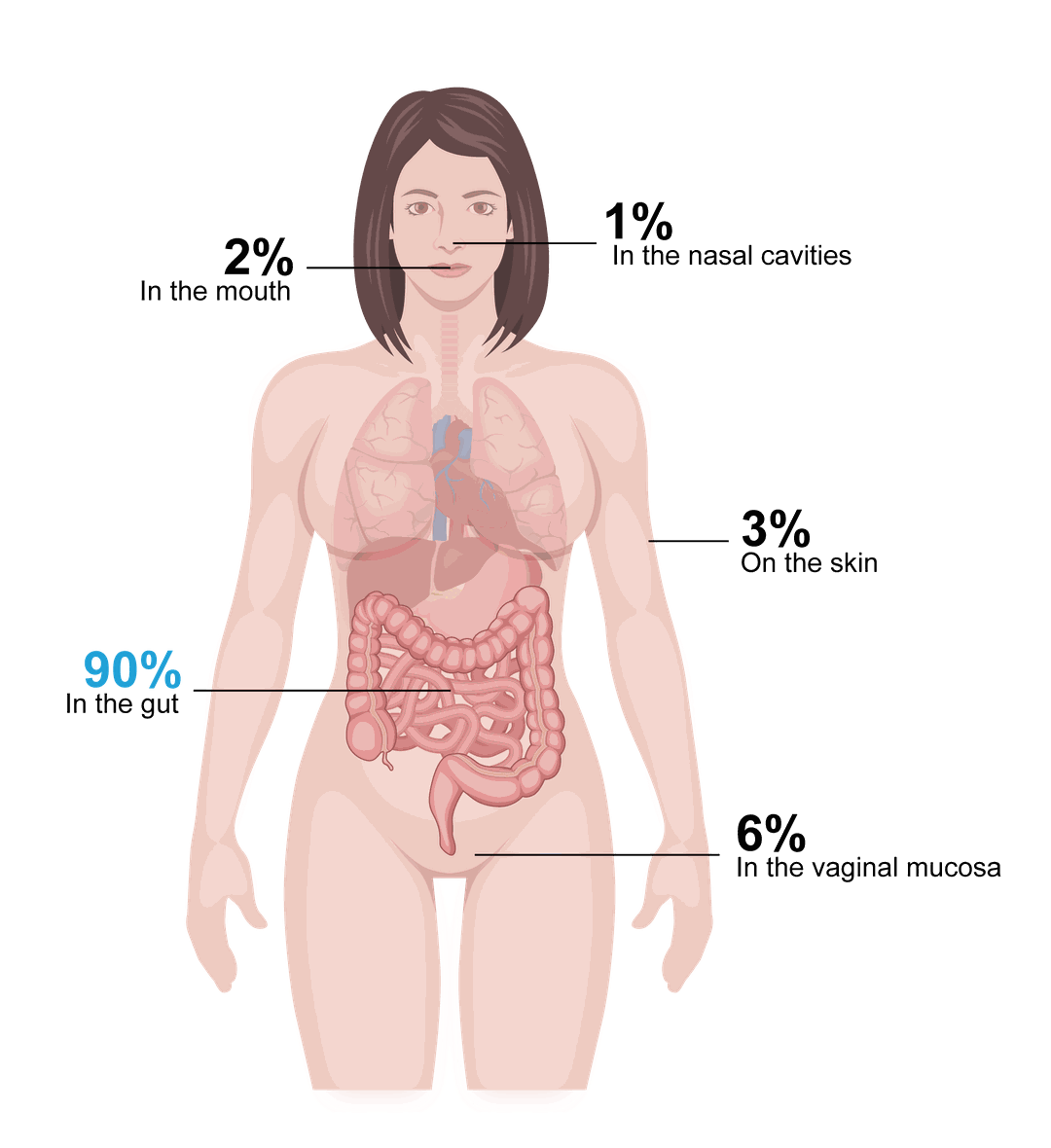
The microbiota
Did you know that the microbiota is the set of microorganisms that inhabit the microbiome?
The human microbiota includes bacteria, yeast, fungi, viruses and other microorganisms living in human organisms in contact with the outside world:
- On the skin: skin microbiota
- In the mouth: oral microbiota
- In the respiratory tract: pulmonary microbiota
- At the level of the genitals: vaginal microbiota
- In the digestive tract: intestinal microbiota, the most important.
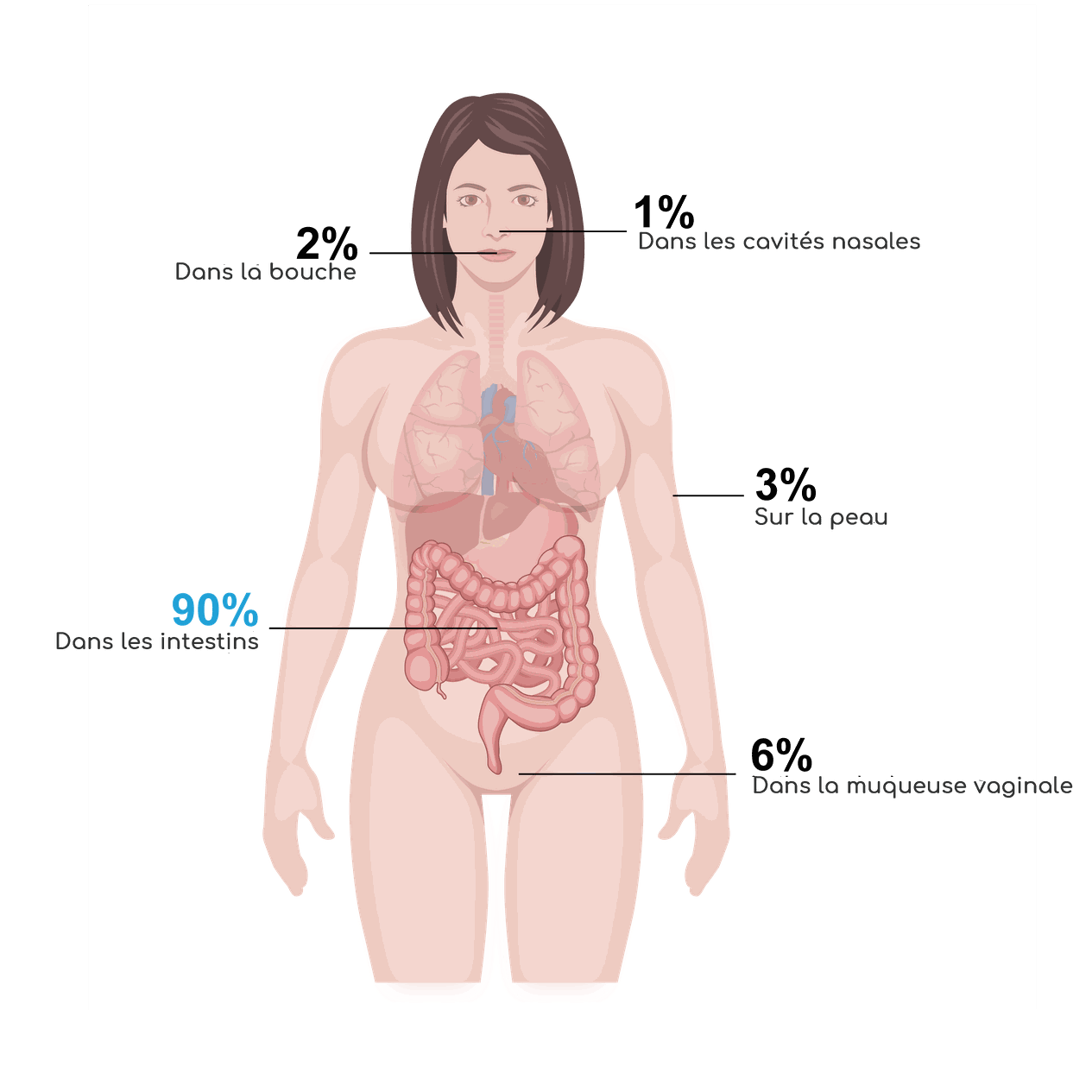
The microbiota
Did you know that the microbiota is the set of microorganisms that inhabit the microbiome?
The human microbiota includes bacteria, yeast, fungi, viruses and other microorganisms living in human organisms in contact with the outside world:
- On the skin: skin microbiota
- In the mouth: oral microbiota
- In the respiratory tract: pulmonary microbiota
- At the level of the genitals: vaginal microbiota
- In the digestive tract: intestinal microbiota, the most important.
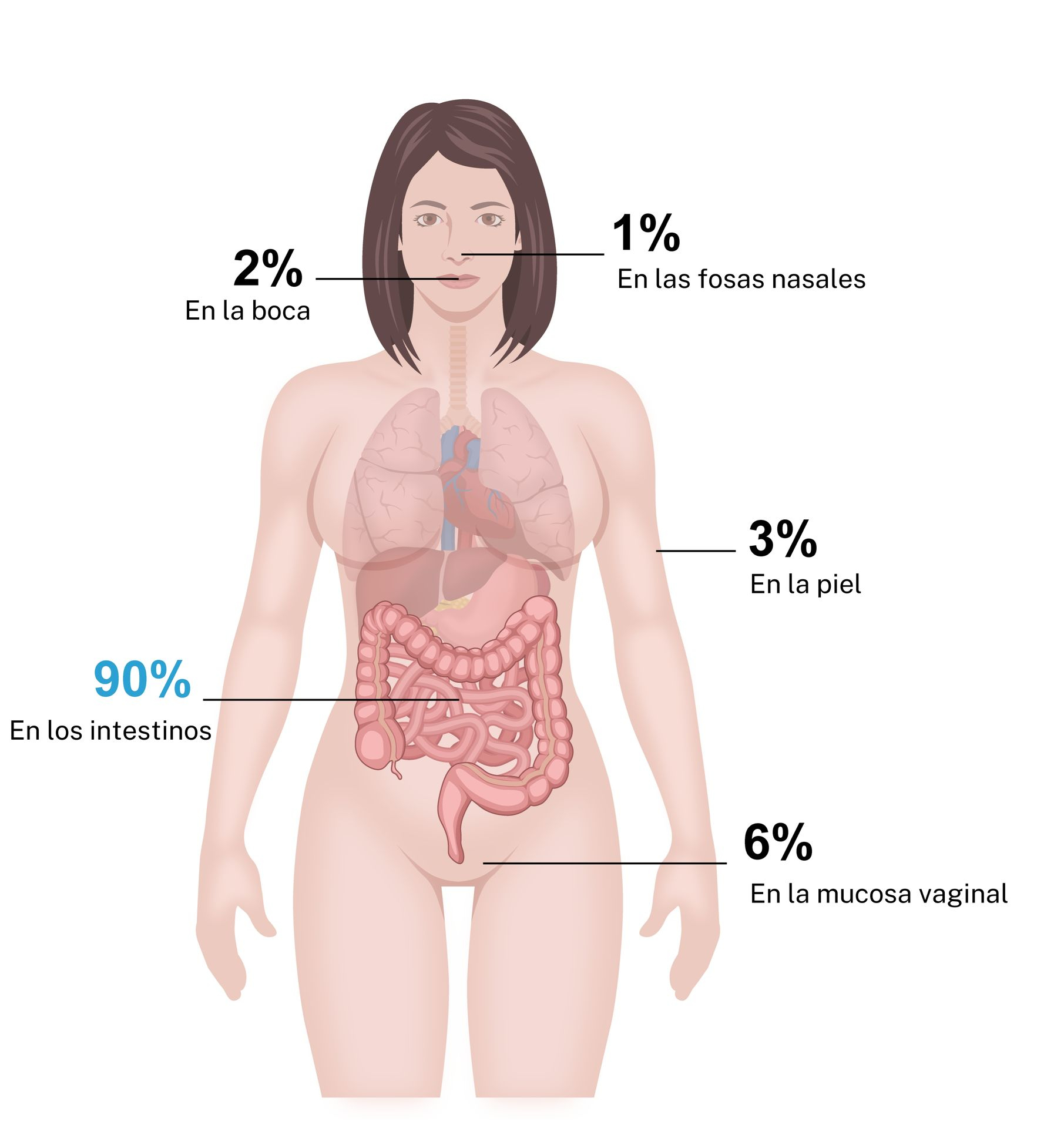
The microbiota
Did you know that the microbiota is the set of microorganisms that inhabit the microbiome?
The human microbiota includes bacteria, yeast, fungi, viruses and other microorganisms living in human organisms in contact with the outside world:
- On the skin: skin microbiota
- In the mouth: oral microbiota
- In the respiratory tract: pulmonary microbiota
- At the level of the genitals: vaginal microbiota
- In the digestive tract: intestinal microbiota, the most important.
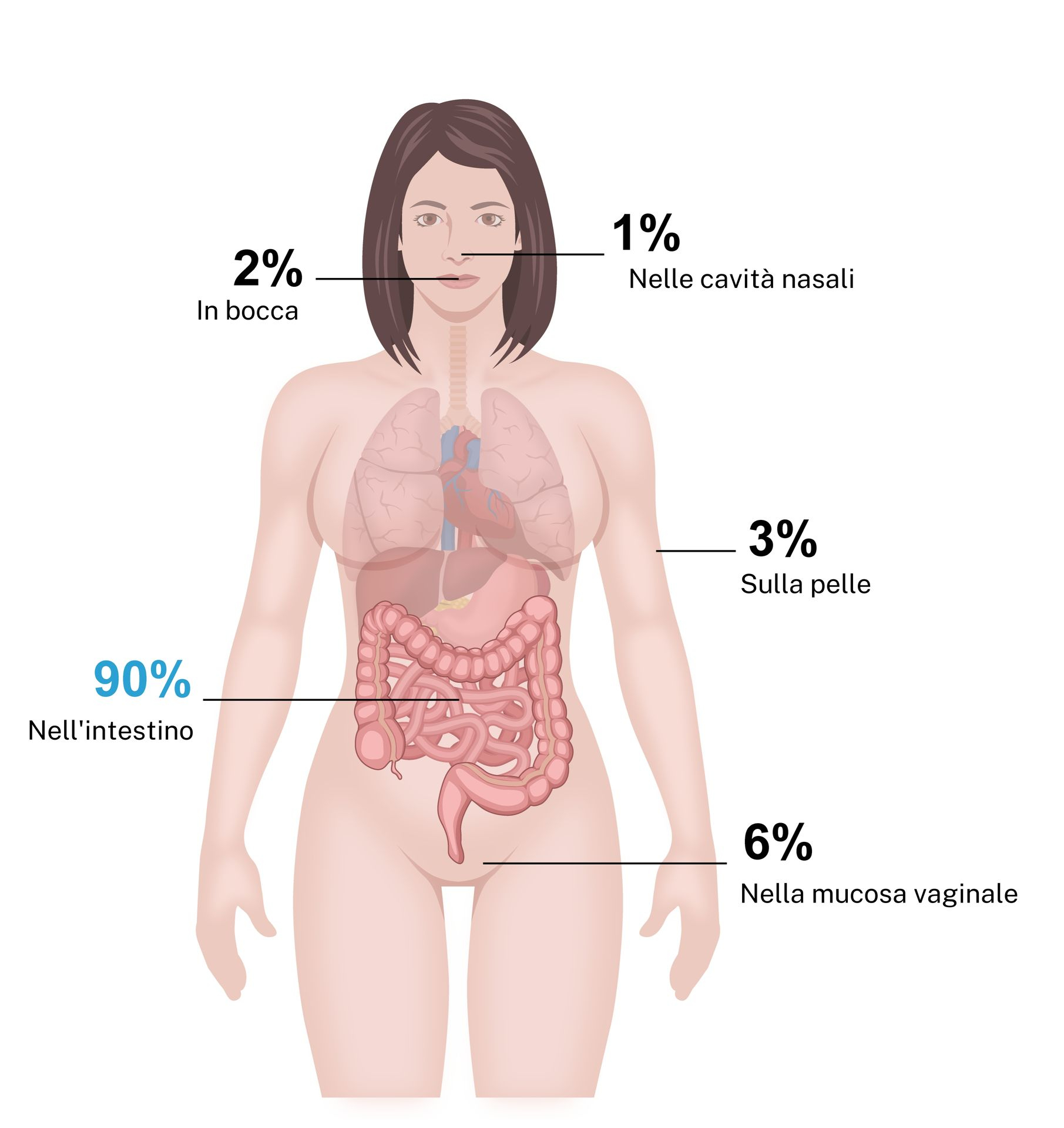
The microbiota
Did you know that the microbiota is the set of microorganisms that inhabit the microbiome?
The human microbiota includes bacteria, yeast, fungi, viruses and other microorganisms living in human organisms in contact with the outside world:
- On the skin: skin microbiota
- In the mouth: oral microbiota
- In the respiratory tract: pulmonary microbiota
- At the level of the genitals: vaginal microbiota
- In the digestive tract: intestinal microbiota, the most important.
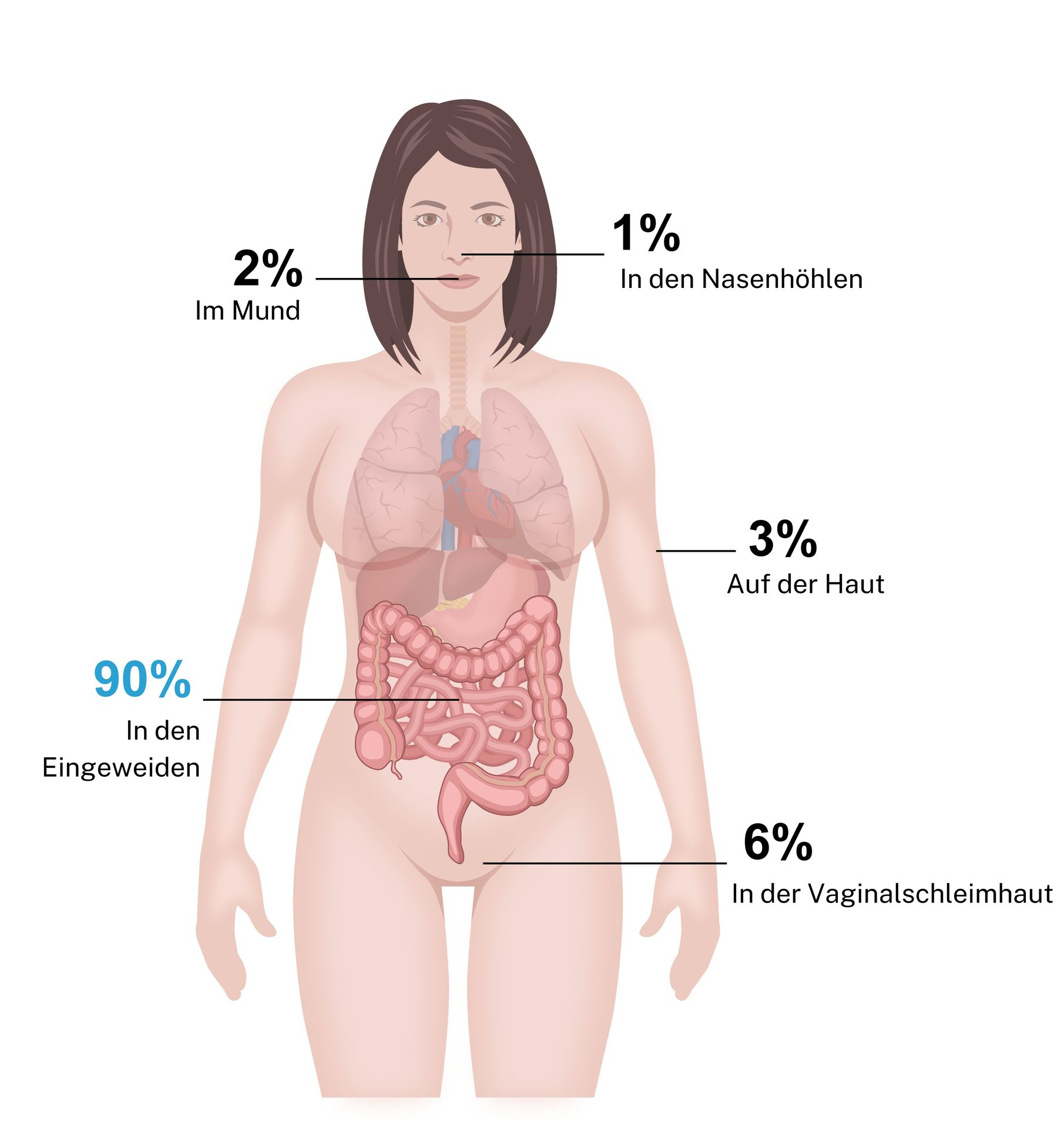
The microbiota
Did you know that the microbiota is the set of microorganisms that inhabit the microbiome?
The human microbiota includes bacteria, yeast, fungi, viruses and other microorganisms living in human organisms in contact with the outside world:
- On the skin: skin microbiota
- In the mouth: oral microbiota
- In the respiratory tract: pulmonary microbiota
- At the level of the genitals: vaginal microbiota
- In the digestive tract: intestinal microbiota, the most important.
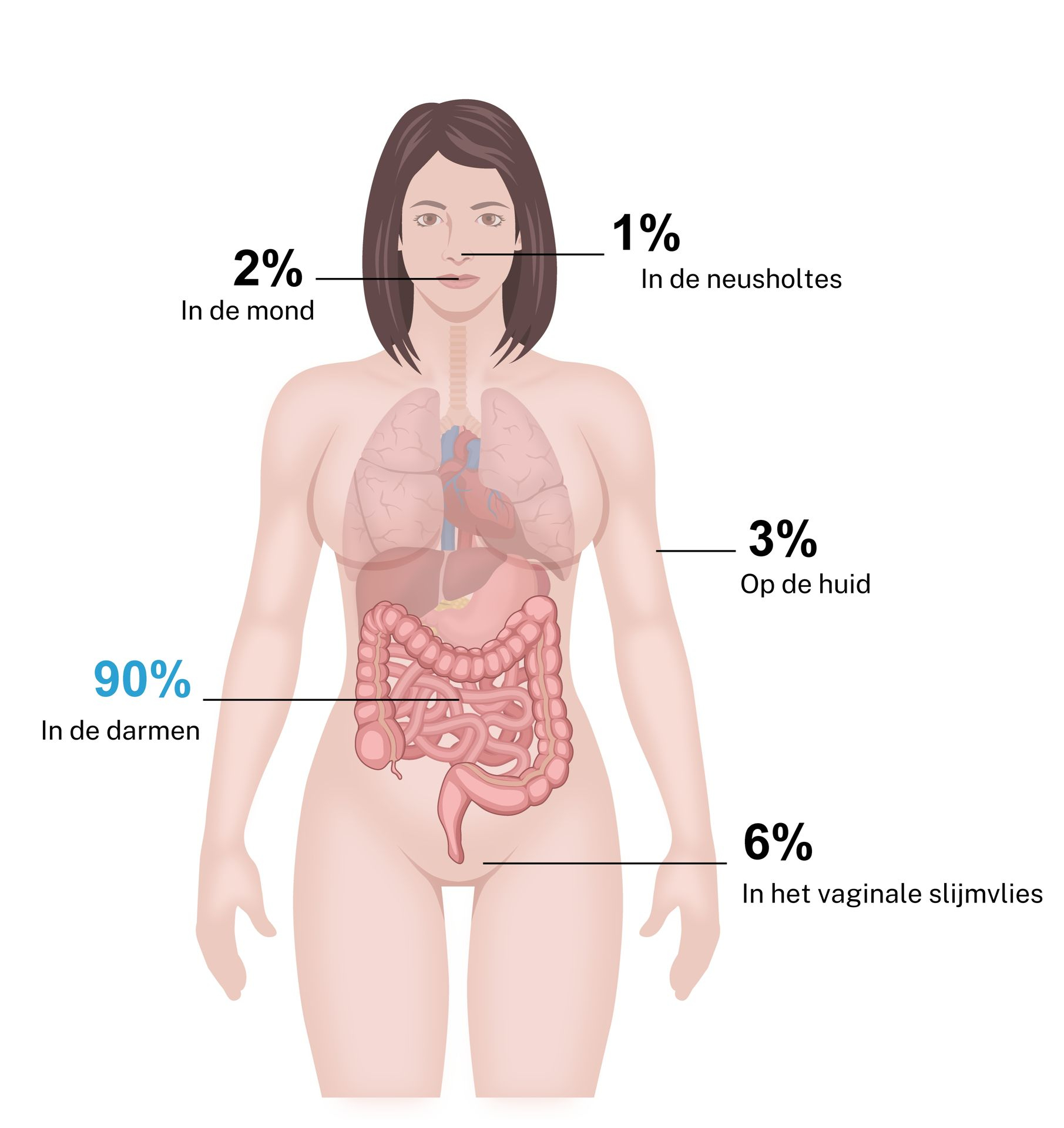
The microbiota
Did you know that the microbiota is the set of microorganisms that inhabit the microbiome?
The human microbiota includes bacteria, yeast, fungi, viruses and other microorganisms living in human organisms in contact with the outside world:
- On the skin: skin microbiota
- In the mouth: oral microbiota
- In the respiratory tract: pulmonary microbiota
- At the level of the genitals: vaginal microbiota
- In the digestive tract: intestinal microbiota, the most important.
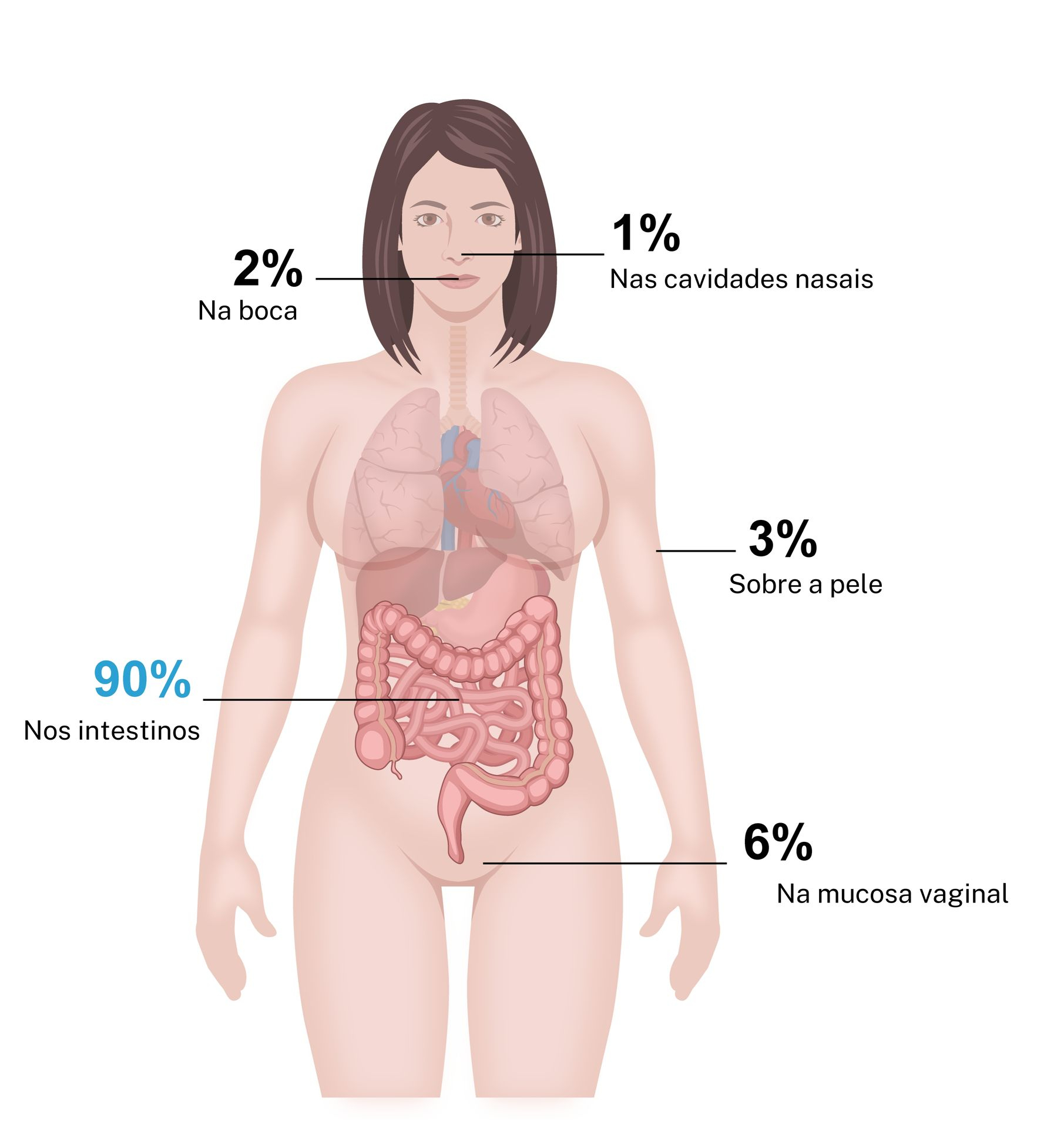
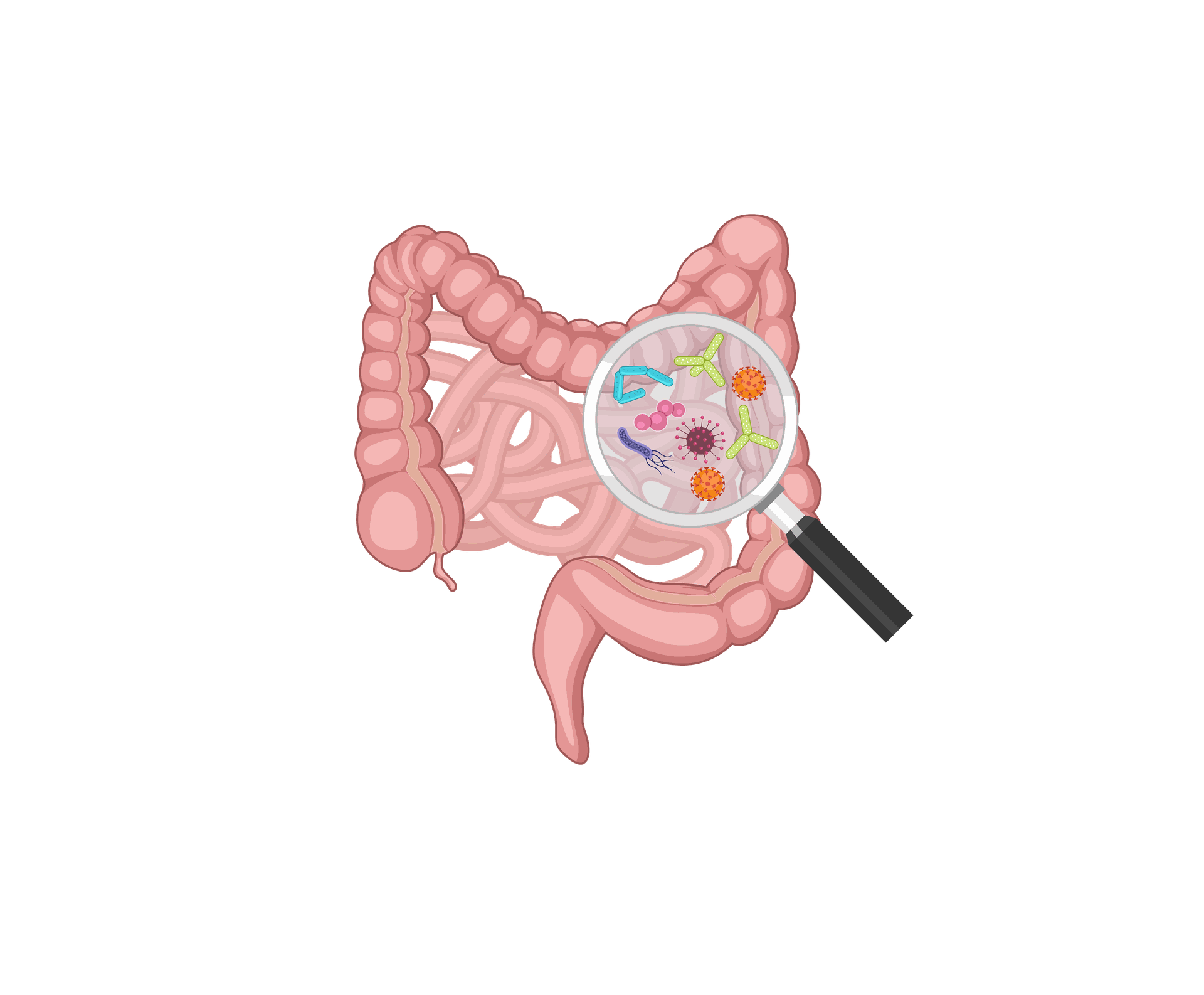
Intestinal microbiota
One of the most studied groups of bacteria in the human body is the intestinal microbiota, also known as "gut flora". This microbiota can contain more than 1000 different species of bacteria and is composed of about 10,000 billion bacteria, which is 1 time more than the cells that make up our body.
This microbiota undergoes changes throughout our lives, due to factors such as the environment, long-term diet, drugs and medications, stress, etc.
An imbalance of the microbiota, also called "dysbiosis", can lead to dysfunctions of the digestive system and cause various pathologies.
Role of the intestinal microbiota
The microbiota is in close interaction with the intestine and plays a major role in our health and well-being. It performs, among other things, metabolic functions essential to digestion by breaking down undigested food in the small intestine. It also acts as a barrier against pathogenic micro-organisms responsible for various diseases.
70% to 80% of our immune system resides in our intestine. If our body does not have enough good bacteria, bad bacteria take over and can cause many health problems such as constipation, diarrhea, gas, inflammation, food allergies, fatigue, irritability etc.
The intestinal microbiota represents the first reservoir of immune cells in the human body by sorting out the good and bad bacteria. The immune system then influences the diversity of the microbiota and, in return, the microbiota influences the immune system. It is therefore essential for our overall health to have a very diverse community of these good bacteria, especially in digestion, brain function, cardiovascular health and immunity,...
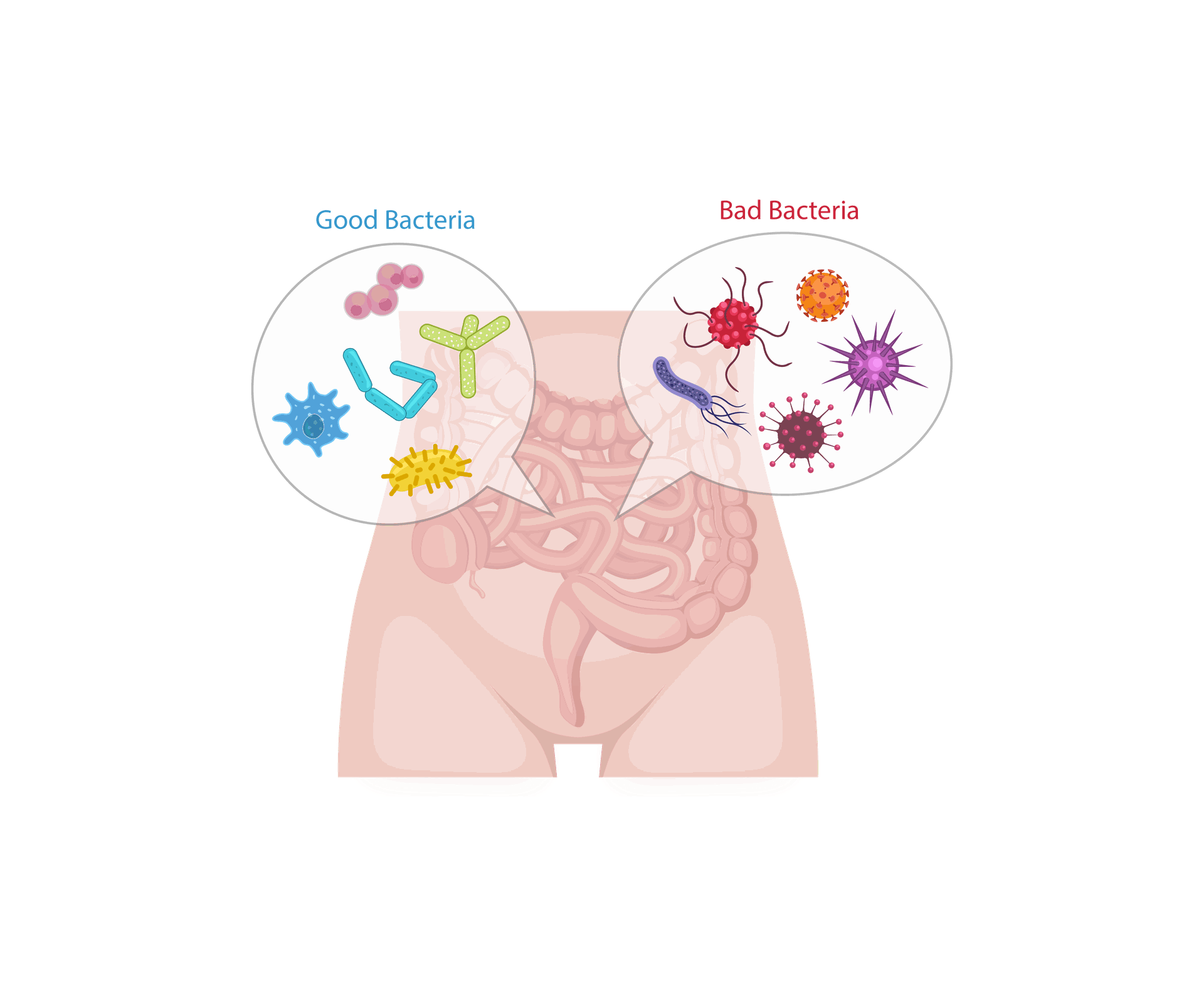
Role of the intestinal microbiota
The microbiota is in close interaction with the intestine and plays a major role in our health and well-being. It performs, among other things, metabolic functions essential to digestion by breaking down undigested food in the small intestine. It also acts as a barrier against pathogenic micro-organisms responsible for various diseases.
0% to 80% of our immune system resides in our intestine. If our body does not have enough good bacteria, bad bacteria take over and can cause many health problems such as constipation, diarrhea, gas, inflammation, food allergies, fatigue, irritability etc.
The intestinal microbiota represents the first reservoir of immune cells in the human body by sorting out the good and bad bacteria. The immune system then influences the diversity of the microbiota and, in return, the microbiota influences the immune system. It is therefore essential for our overall health to have a very diverse community of these good bacteria, especially in digestion, brain function, cardiovascular health and immunity,...
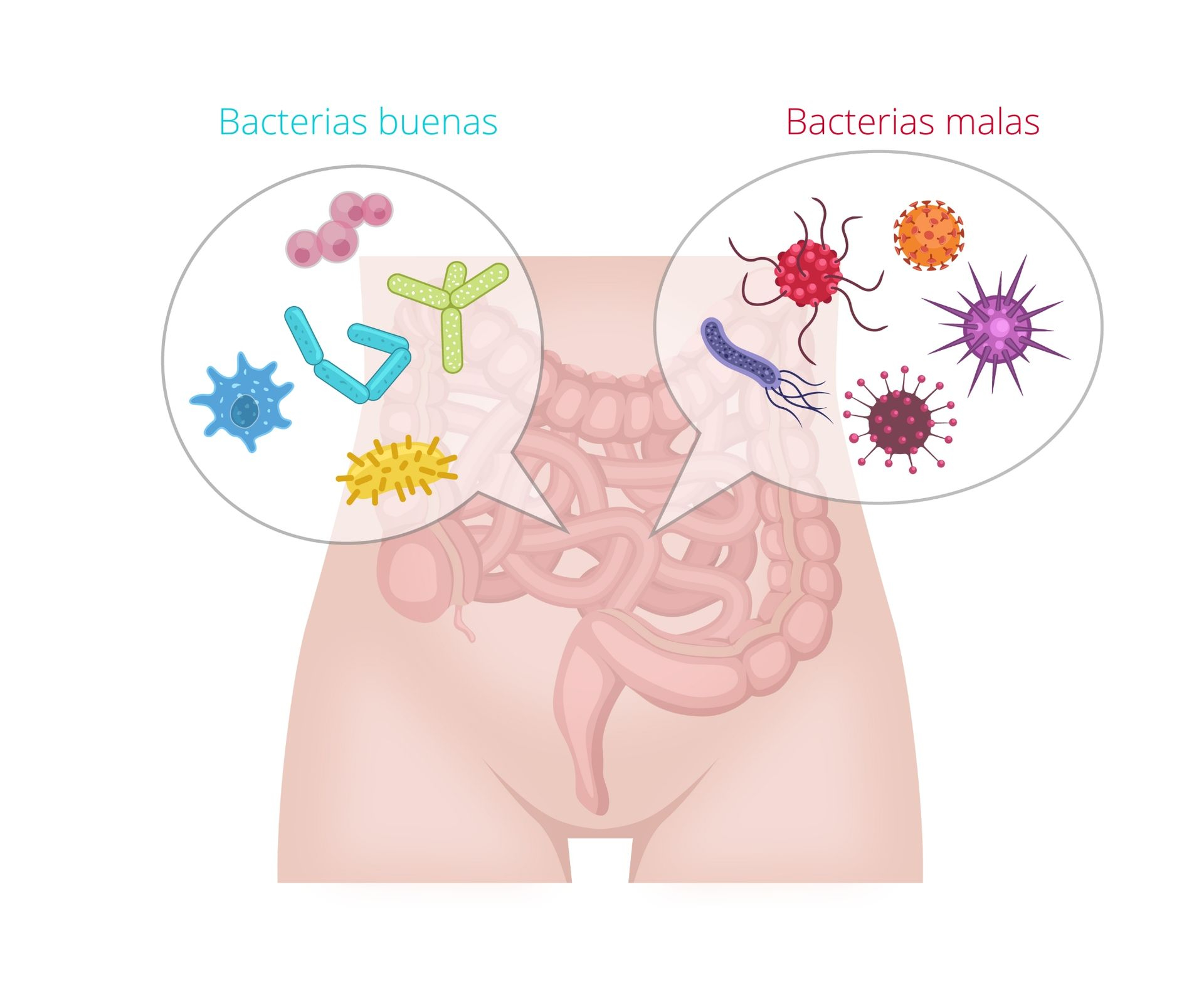
Role of the intestinal microbiota
The microbiota is in close interaction with the intestine and plays a major role in our health and well-being. It performs, among other things, metabolic functions essential to digestion by breaking down undigested food in the small intestine. It also acts as a barrier against pathogenic micro-organisms responsible for various diseases.
0% to 80% of our immune system resides in our intestine. If our body does not have enough good bacteria, bad bacteria take over and can cause many health problems such as constipation, diarrhea, gas, inflammation, food allergies, fatigue, irritability etc.
The intestinal microbiota represents the first reservoir of immune cells in the human body by sorting out the good and bad bacteria. The immune system then influences the diversity of the microbiota and, in return, the microbiota influences the immune system. It is therefore essential for our overall health to have a very diverse community of these good bacteria, especially in digestion, brain function, cardiovascular health and immunity,...
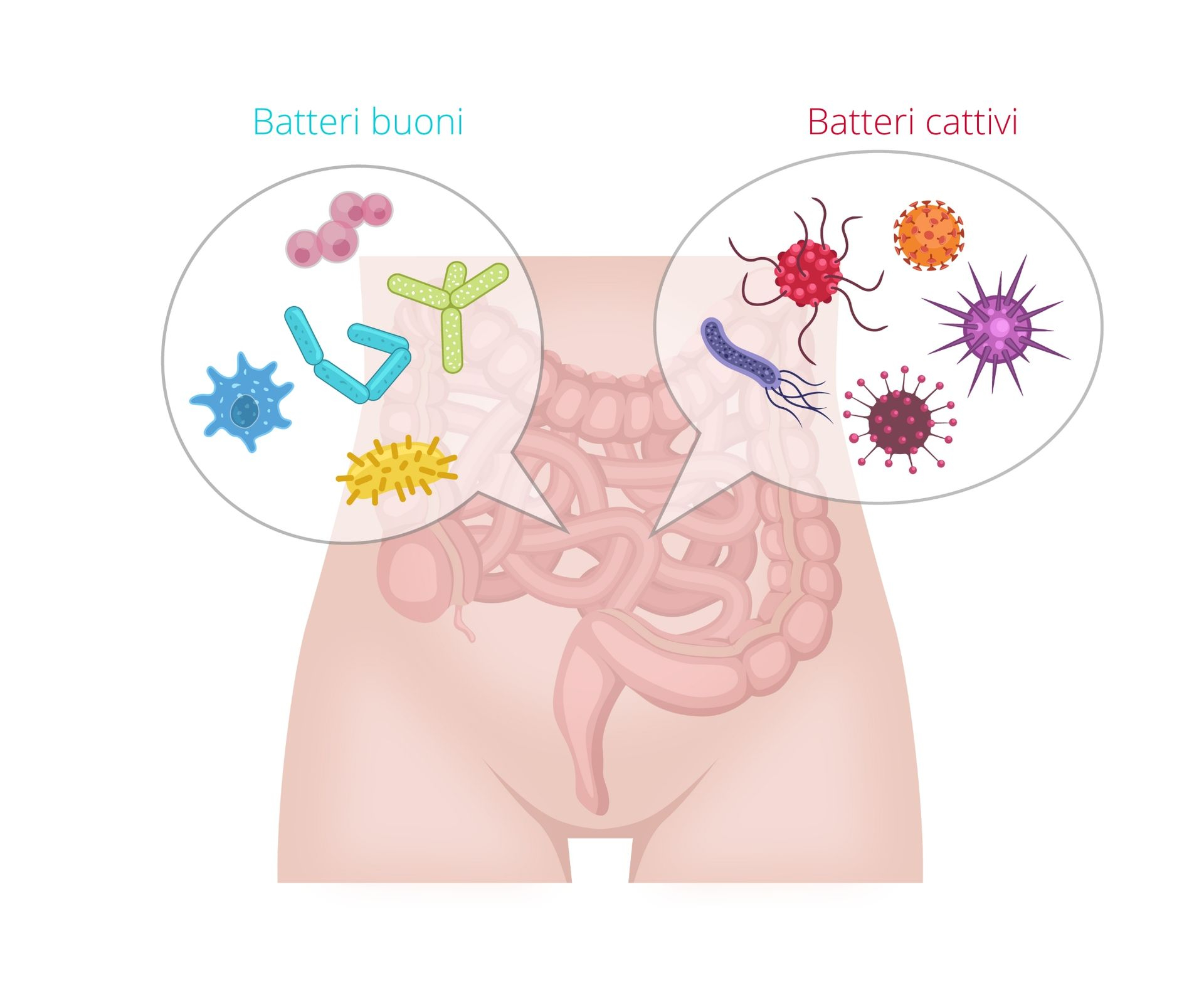
Role of the intestinal microbiota
The microbiota is in close interaction with the intestine and plays a major role in our health and well-being. It performs, among other things, metabolic functions essential to digestion by breaking down undigested food in the small intestine. It also acts as a barrier against pathogenic micro-organisms responsible for various diseases.
0% to 80% of our immune system resides in our intestine. If our body does not have enough good bacteria, bad bacteria take over and can cause many health problems such as constipation, diarrhea, gas, inflammation, food allergies, fatigue, irritability etc.
The intestinal microbiota represents the first reservoir of immune cells in the human body by sorting out the good and bad bacteria. The immune system then influences the diversity of the microbiota and, in return, the microbiota influences the immune system. It is therefore essential for our overall health to have a very diverse community of these good bacteria, especially in digestion, brain function, cardiovascular health and immunity,...
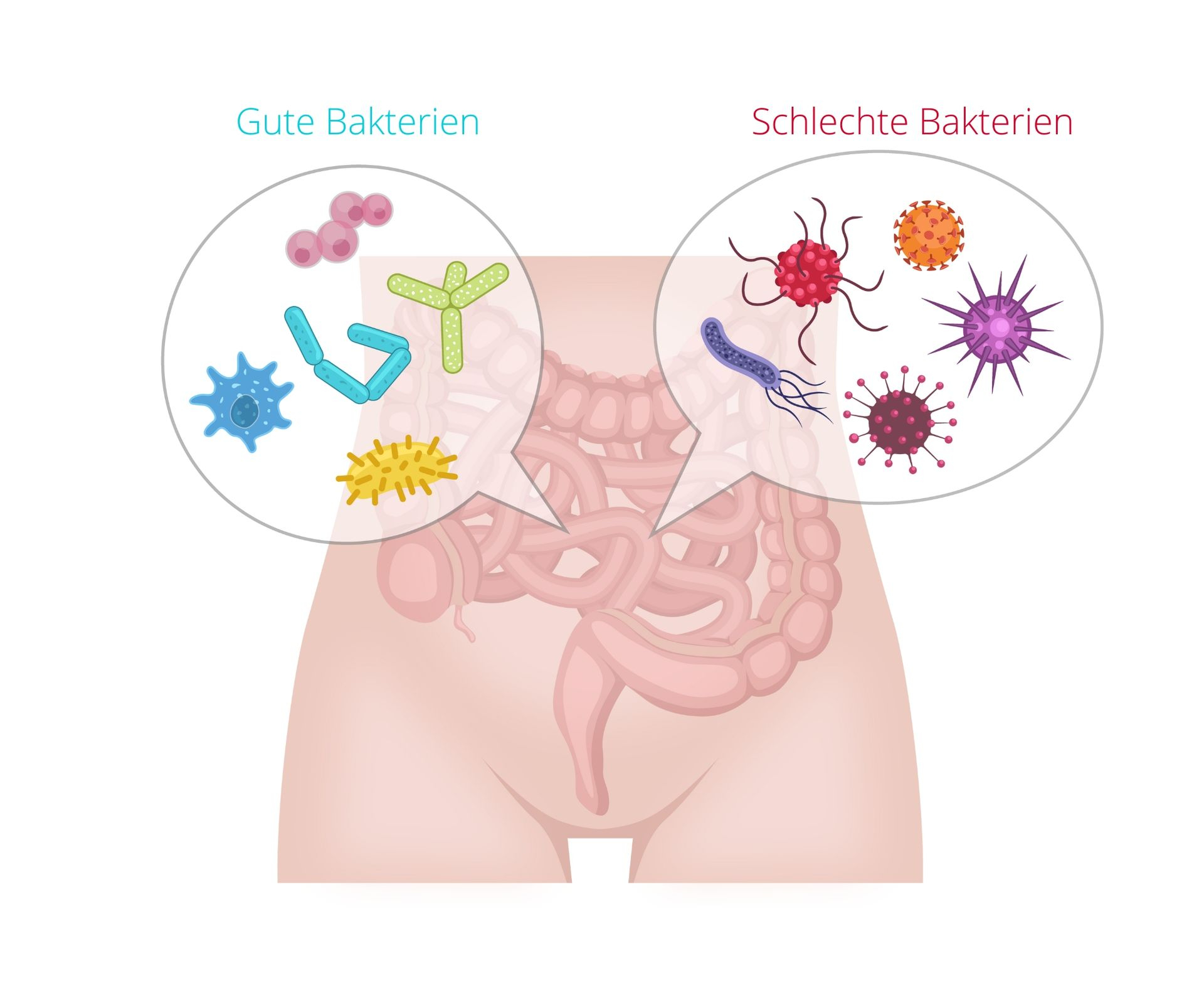
Role of the intestinal microbiota
The microbiota is in close interaction with the intestine and plays a major role in our health and well-being. It performs, among other things, metabolic functions essential to digestion by breaking down undigested food in the small intestine. It also acts as a barrier against pathogenic micro-organisms responsible for various diseases.
0% to 80% of our immune system resides in our intestine. If our body does not have enough good bacteria, bad bacteria take over and can cause many health problems such as constipation, diarrhea, gas, inflammation, food allergies, fatigue, irritability etc.
The intestinal microbiota represents the first reservoir of immune cells in the human body by sorting out the good and bad bacteria. The immune system then influences the diversity of the microbiota and, in return, the microbiota influences the immune system. It is therefore essential for our overall health to have a very diverse community of these good bacteria, especially in digestion, brain function, cardiovascular health and immunity,...
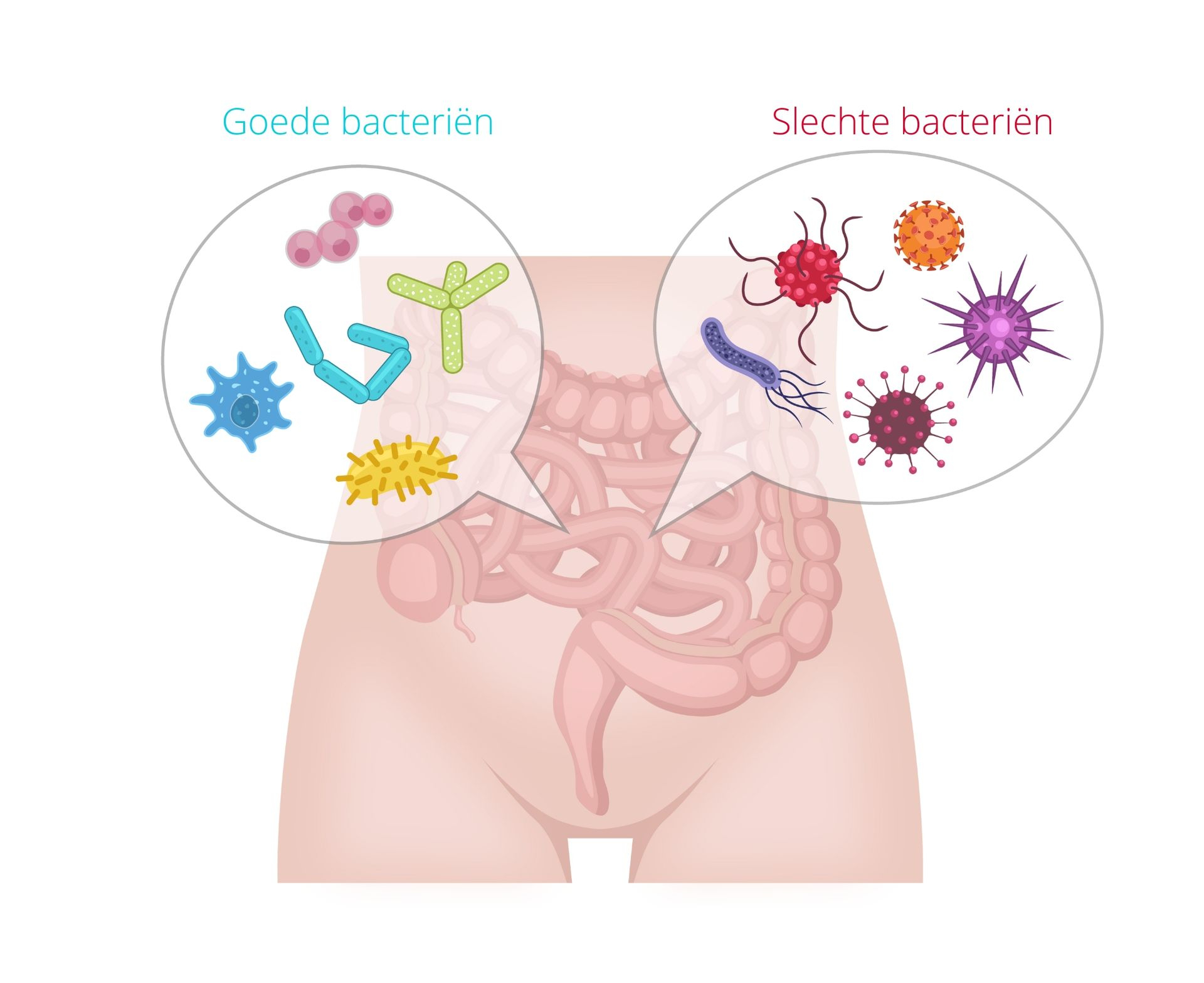
Role of the intestinal microbiota
The microbiota is in close interaction with the intestine and plays a major role in our health and well-being. It performs, among other things, metabolic functions essential to digestion by breaking down undigested food in the small intestine. It also acts as a barrier against pathogenic micro-organisms responsible for various diseases.
0% to 80% of our immune system resides in our intestine. If our body does not have enough good bacteria, bad bacteria take over and can cause many health problems such as constipation, diarrhea, gas, inflammation, food allergies, fatigue, irritability etc.
The intestinal microbiota represents the first reservoir of immune cells in the human body by sorting out the good and bad bacteria. The immune system then influences the diversity of the microbiota and, in return, the microbiota influences the immune system. It is therefore essential for our overall health to have a very diverse community of these good bacteria, especially in digestion, brain function, cardiovascular health and immunity,...
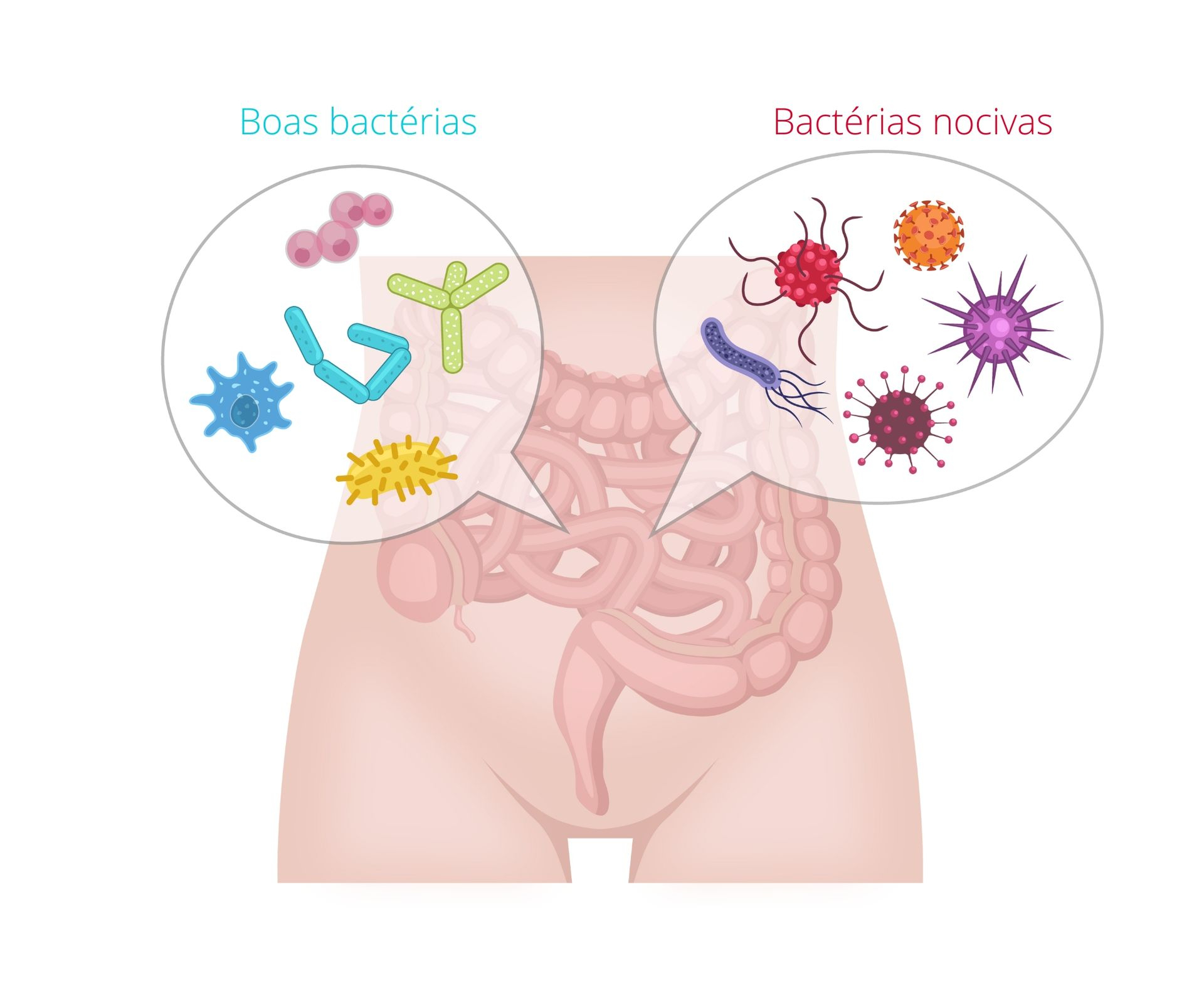
Role of the intestinal microbiota
The microbiota is in close interaction with the intestine and plays a major role in our health and well-being. It performs, among other things, metabolic functions essential to digestion by breaking down undigested food in the small intestine. It also acts as a barrier against pathogenic micro-organisms responsible for various diseases.
0% to 80% of our immune system resides in our intestine. If our body does not have enough good bacteria, bad bacteria take over and can cause many health problems such as constipation, diarrhea, gas, inflammation, food allergies, fatigue, irritability etc.
The intestinal microbiota represents the first reservoir of immune cells in the human body by sorting out the good and bad bacteria. The immune system then influences the diversity of the microbiota and, in return, the microbiota influences the immune system. It is therefore essential for our overall health to have a very diverse community of these good bacteria, especially in digestion, brain function, cardiovascular health and immunity,...
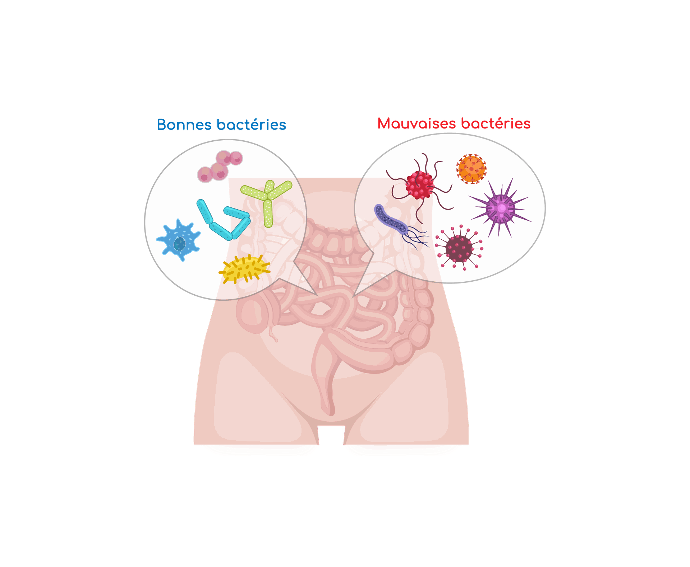
How to take care of your microbiota?
There are several ways to stimulate and maintain bacterial diversity in our body and our intestine:
These different factors have a strong influence on health. If they are not taken into account, they can hinder the biodiversity of the microbiota and lead to disorders such as diabetes, obesity, fatigue, anxiety, inflammatory diseases, diarrhea or constipation, skin stress, ...
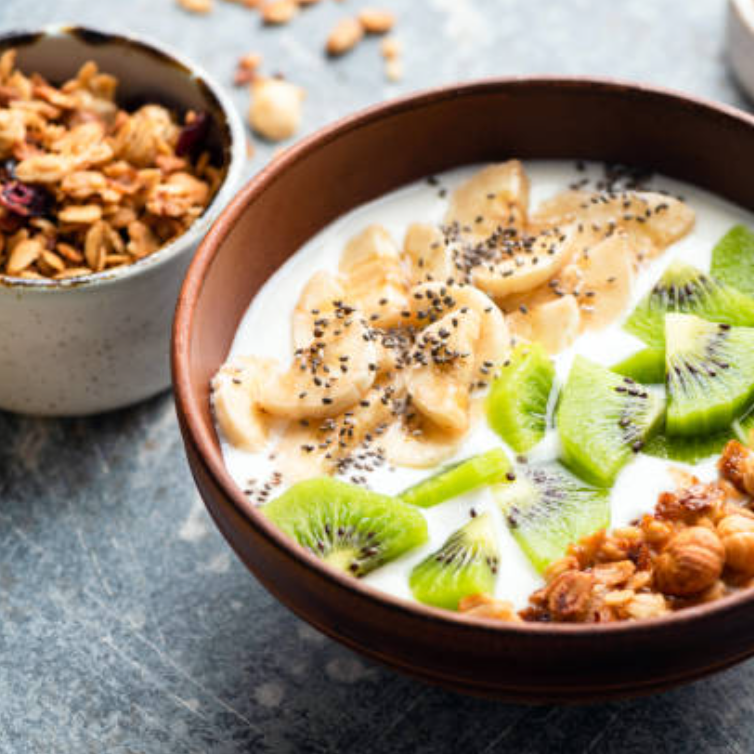
A healthy nutrition
The way you eat is the main lever to promote a healthy microbiota: Consumption of fruits, vegetables, fiber, fermented products rich in probiotics (yogurt, sauerkraut, ...) improves the biodiversity of your microbiota. On the other hand, excessive consumption of sugar, high-fat products and processed products have a negative effect on the body and deplete the microbial diversity in the intestine.

Healthy lifestyle
Lifestyle has a considerable influence on our health and on the diversity of our microbiome: A good night's sleep, sleeping at fixed hours, regular physical activity, avoiding stress, ... are actions that must be part of our daily life.

Avoid taking antibiotics
Even if taking antibiotics is sometimes necessary, they also destroy the good bacteria of the intestinal flora.

Natural supplements
Natural food supplements containing probiotics can be an option to improve the quality and balance of the intestinal flora.
Are you interested in the subject?
Would you like a specific training for yourself or your team on this topic?
Do not hesitate to contact us.